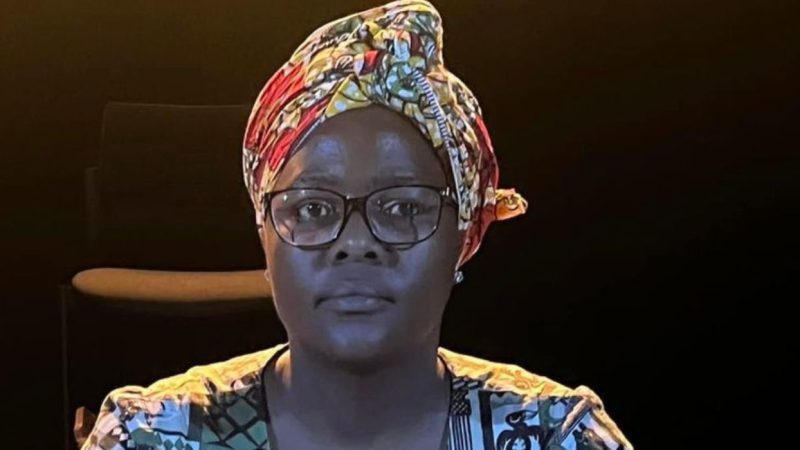Exploring ‘Stash of the Street’: A Conversation with Poet Marshal Muhaga

Marshal Muhaga is Bindura born poet and writer who is currently based in Turkey for his studies. I stumbled on Muhaga’s recently published poetry collection ‘Stash of the Street’ and was enraptured as I browsed through his compositions.
I managed to track down the talented writer to talk to him more on his writing, inspiration and wonderful talent; what a delightful conversation it was! *KM – Kudzai Mhangwa; MM – Marshal Muhaga
KM: Thank you for taking the time to have this conversation with me. Please introduce us to Marshal Muhaga.
MM: I was born in Bindura but I spent most of my time in Shamva, so my childhood was split between those areas but after I finished primary school I went to Harare where I did my high schooling then after that I came to Turkey where I did my bachelor’s degree in journalism. Soon after graduating I pursued my Masters in New Media and Communications.
I’ve been writing for a long time be it poems, be it short stories, or anything of that sort. I’m someone who likes writing, whenever I get the time. I just try to write something, be it paper or on my laptop so this idea of writing poems came a few years ago because I had already written something before.
KM: Marshal Muhaga is also an author who released his debut poetry collection ‘Stash of the Street’ last year. When did you start writing?
MM: There’s a suitcase full of wayward stories, scripts/articles beneath my bed. I don’t remember how most of them got there. Sometimes I’ll thumb through them and see my scruffy handwriting, discovering ideas. And I grew up in an environment full with thrill of creative prompts and essay competitions at school kept me glued. The idea of writing has been in my genesis.
KM: What inspires you to write in the first place?
MM: For me discipline is the key. If you only write when you are inspired, you will never finish anything, never make progress. I write even when I don’t feel like it. Chances are, if I write enough, I’ll find myself becoming more inspired as I write. Like they say, “We get more creative while we’re creating.”
KM: Back to the anthology [Stash of the Street], when did you begin writing it and what inspired you?
MM: I’m an observant person. I usually write when I can’t say something in words. During the COVID pandemic, the way our lives changed really impacted me. That situation made me view the world differently. Poetry became a release for me in a moment of fear, sadness, depression and anxiety. Subsequently, getting all my feelings down on paper took the pressure off a little. As long as life kept kicking me in the gut, I found plenty of inspiration.
KM: How was the process of getting it published like?
MM: It was a tough ride because although I had poetry background, I hadn’t personally written one myself. So, I had to work on many aspects. Thanks to my mentor Samantha Vazhure and Carnelian Heart Publishing throughout the process, effective communication and collaboration between us was essential to ensure the anthology meets the desired standards and reaches its intended audience.
KM: One thing I loved about your special little book is your use of similes and visual imagery. “We are restless winds that morphed into a storm; and tore through the place it called home.” That was striking! How did you learn to be so evocative as a poet?
MM: This is one of the most beautiful questions that I have ever come across. I don’t know whether I know enough to be qualified as a poet, but I would still love to answer this.
Being a poet, to me, has aways been more than rhymes, metaphors and verses. It is the way I think, the intense emotions that I feel that burn within me until I bleed in pen. It is a release of emotion, away to express pain, fear, love, emotion and adoration. Robert Frost explained what I feel perfectly when he said “To be a poet is a condition, not a profession.” Like a painter expresses his feelings through his canvas. A musician though his notes. In a similar way I try to express my feelings through my poetry.
KM: The book also has some moving poems about the ache of love [‘Longing For You Kills Me’, ‘Let Me Go’, ‘The End of Us’], what inspired these powerful pieces?
MM: The poems were inspired by the complexities and emotions surrounding love, longing and heartbreak. They draw from personal experiences, observations and the universal human experience of love and loss.
KM: You also dabble in other themes such as genocide and poverty. I loved that turning the pages. There was something different everywhere. How was it like writing these rather difficult topics?
MM: Writing about difficult topics such as genocide and poverty can be emotionally challenging and intellectually demanding. It requires careful research, empathy and a deep understanding of the subject matter. For me, exploring these themes involves delving into the human condition, confronting uncomfortable truths and grappling with moral complexities. Despite the difficulties, addressing these topics allows me to shed light on important issues, provoke thought and inspire change. It’s a balancing act between honouring the seriousness of the subject matter while also crafting engaging and impactful storytelling.
KM: You are also the author of ‘Blueprint from the dictator factory.’ What is this book about?
MM: In the Book I bring a unique perspective, exploring authoritarianism and its impact on society. The script offers insights into my views on governance, human rights and the struggle for democracy.
KM: Who has inspired you as a writer?
MM: Many writers inspire me in my day life, I learn from every writer I come across. Some notable authors who have inspired me include Lexta Mafumhe, a well-known actor, poet and was a script writer for the local soap ‘Studio 263’ with about five-hundred episodes penned by him. He was my Shona teacher. Fyodor Dostoevsky for his psychological depth, existential themes and complex narratives. George Orwell for his insightful exploration of dystopian societies, totalitarianism and the abuse of power continues.
KM: What books have you been reading of late and in general how does your reading shelf look like?
MM: My last read was “50 Essays” by Orwell. In general, my shelves include fiction, non-fiction, poetry, classics, contemporary works and more. These include “History of Nations: How their identity were forged” by Peter Furtado, “Rise & Fall of revolutionary primates” by Oumar Folata, “The 7th Commandment” by Lawrence Sanders, “Robinson Crusoe” by Daniel Defoe, George Orwell collections, “Kutonhodzwa kwaChauruka” by D. Chiguvare, “Tambaoga Mwanangu” by Giles Kuimba, etcetera.
KM: Thank you so much for taking the time to speak to us!
Marshal Muhaga’s book ‘Stash of the Street’ was published by Carnelian Heart Publishing and is available online on Amazon (Stash of the street: Muhaga, Marshal: 9781914287510: Amazon.com: Books) and Barnes and Noble ().





